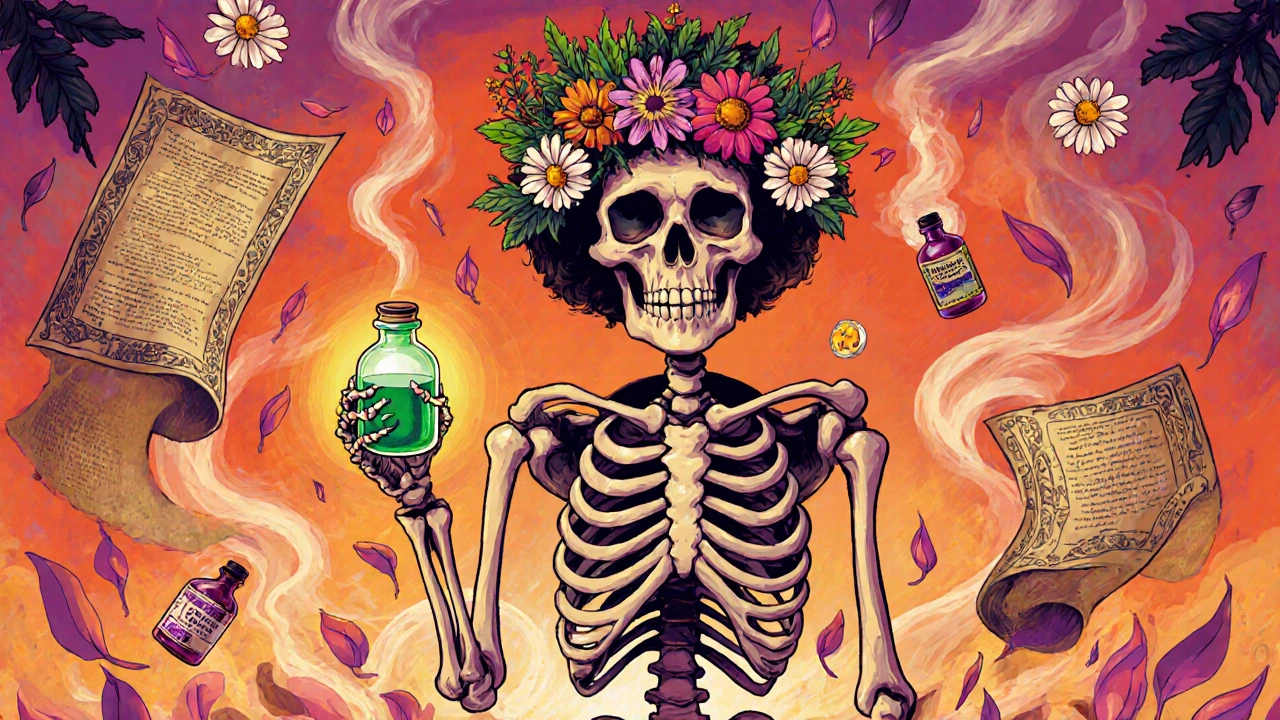Herbal Supplement: What They Are, How They Work, and What You Need to Know
When you hear herbal supplement, a product made from plants used to support health or treat conditions. Also known as botanical medicine, it’s not just tea or tinctures—it’s a multi-billion-dollar industry built on centuries of tradition and modern science. But here’s the thing: just because something comes from a plant doesn’t mean it’s safe, effective, or free from side effects. Many people assume herbal supplements are harmless because they’re "natural," but that’s a dangerous myth. The same plant that helps with sleep might interfere with your blood pressure meds—or even cause liver damage if taken long-term.
Dietary supplements, products taken by mouth that contain a dietary ingredient intended to supplement the diet include vitamins, minerals, amino acids, and yes—herbal extracts. But unlike prescription drugs, herbal supplements don’t need FDA approval before hitting shelves. That means quality, potency, and purity vary wildly. One bottle of echinacea might have 500mg of active compounds; another might have barely 50mg—and no one’s checking. That’s why you can’t just pick up any herbal supplement and expect consistent results.
What you’ll find in this collection isn’t a list of "best herbs for this or that." It’s real, practical info about how these products interact with the medications you’re already taking. You’ll see how plant-based medicine, the use of whole plants or extracts to treat or prevent disease can affect your liver enzymes, blood sugar, or even your heart rhythm. We’ve got posts on how probiotics work with antibiotics, how steroids spike blood sugar, and how caffeine timing affects sleep—all because these aren’t isolated topics. Your body doesn’t care if something is "natural" or "synthetic." It reacts to chemicals, compounds, and doses. If you’re on a prescription, taking an herbal supplement without knowing the risks is like driving with your eyes closed.
Some of the most common herbal supplements—like St. John’s wort, ginkgo, garlic, and turmeric—are linked to serious drug interactions. St. John’s wort can make birth control, antidepressants, and even heart meds stop working. Garlic thins your blood, which is fine if you’re healthy—but risky if you’re about to have surgery. Turmeric might help with inflammation, but it can mess with how your body processes painkillers. These aren’t hypotheticals. These are real cases doctors see every day.
And then there’s the issue of trust. Labels say "standardized extract," but what does that even mean? Who tested it? Was it grown in a clean field or near a highway? Did it contain fillers, heavy metals, or even hidden prescription drugs? The FDA doesn’t routinely test supplements, and third-party certifications (like USP or NSF) are your best bet—but even those aren’t foolproof.
What you’ll find here are no-nonsense guides written for people who take real meds and want to stay safe. No fluff. No hype. Just clear facts on what works, what doesn’t, and what could hurt you. Whether you’re managing diabetes, fighting anxiety, or just trying to sleep better, you need to know what’s in that bottle—and how it talks to the rest of your body. This isn’t about replacing medicine with herbs. It’s about using them wisely, safely, and with full awareness of the risks.

